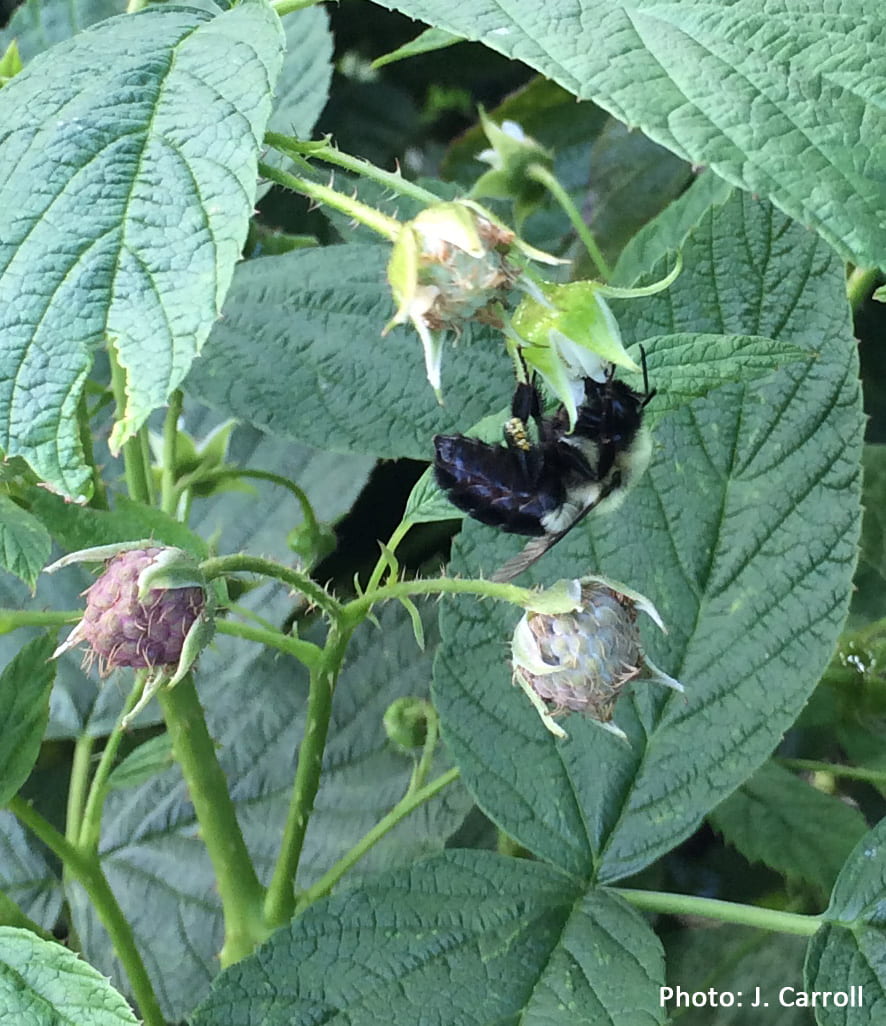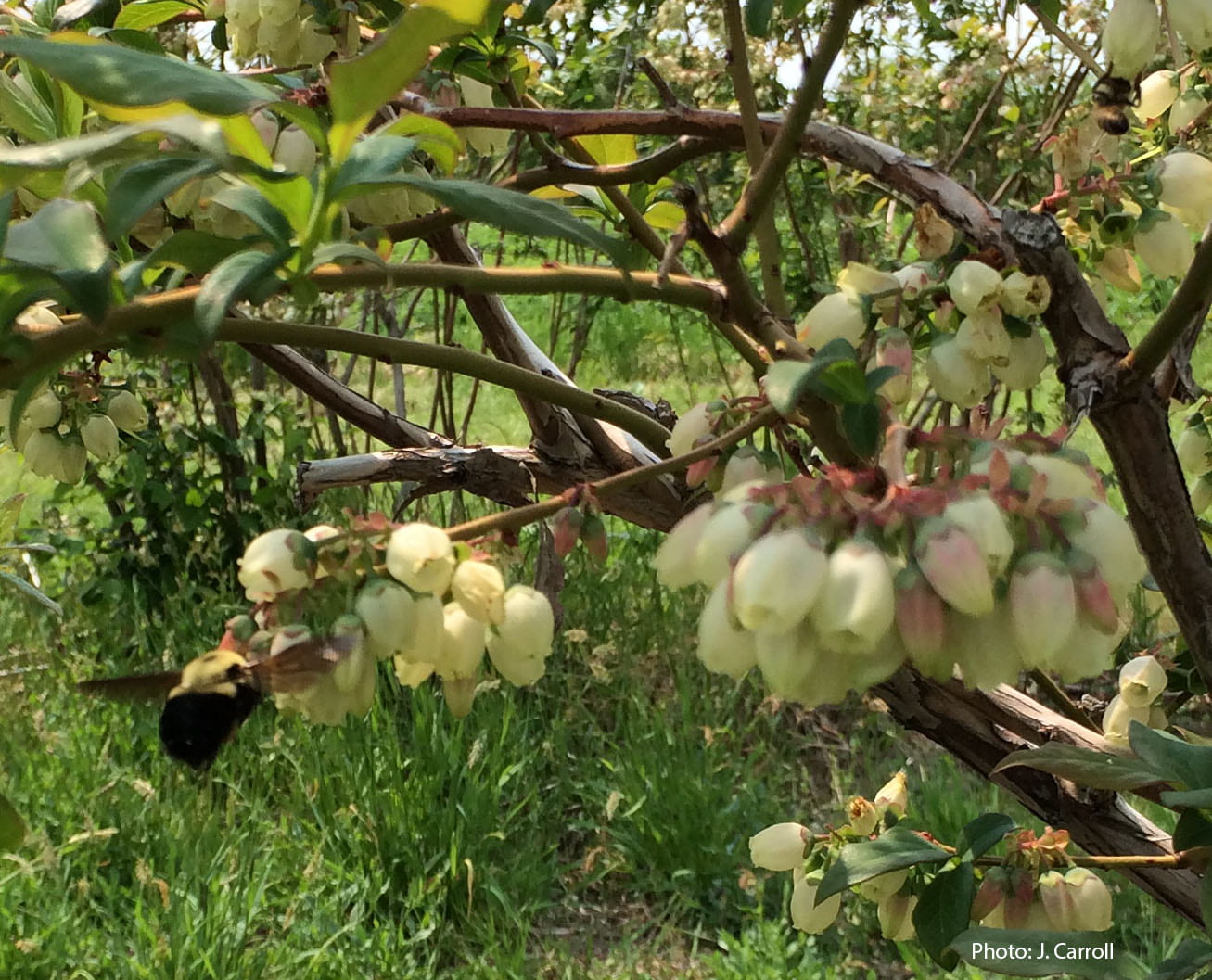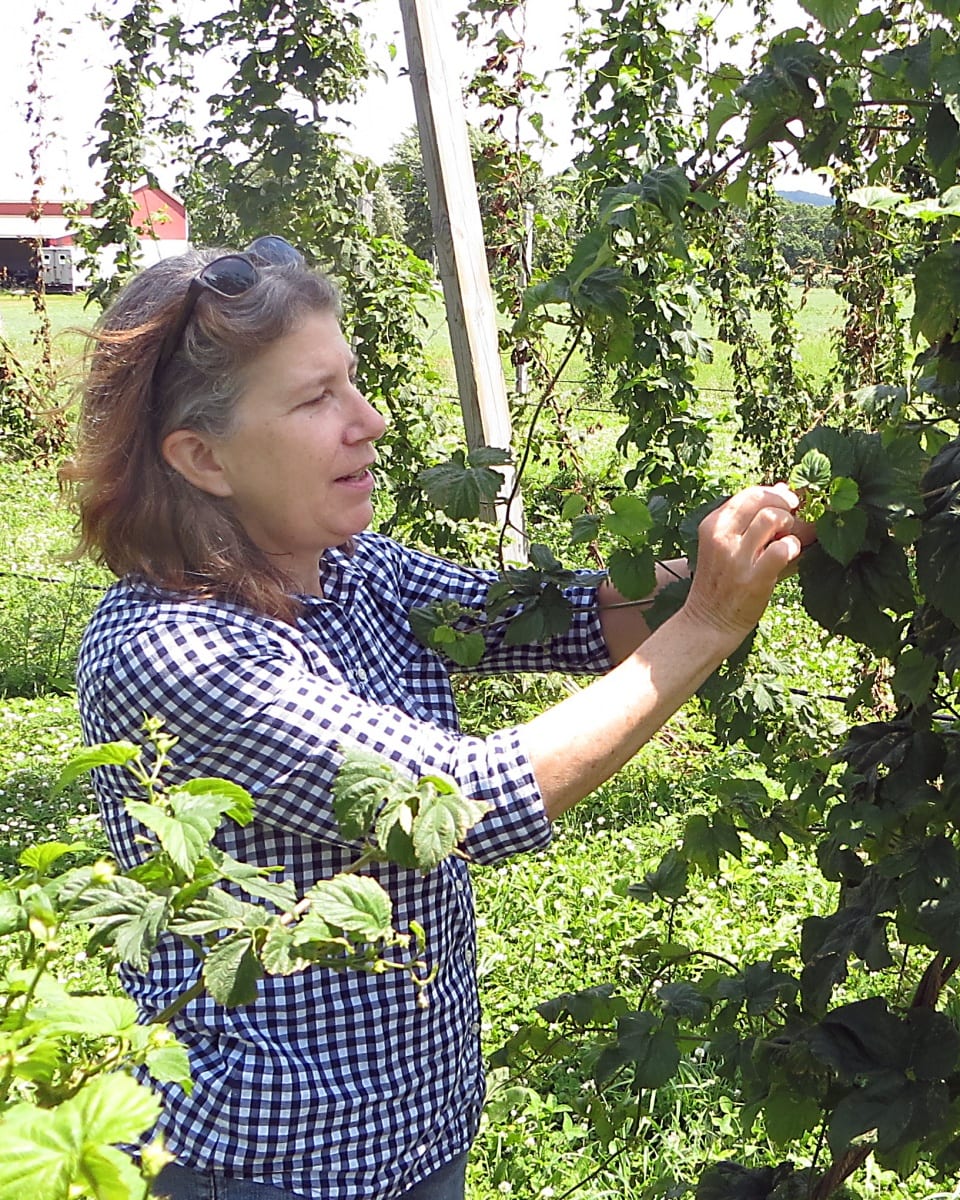
More and more homeowners and small-gardeners are choosing to reduce or end their use of pesticides. Not just for the health of their family and pets, but to reduce the risk of harming pollinators. Growers and farmers have multiple reasons to reduce pesticide use: reduced cost, reduced health risk to their families and employees, lost revenues in an ever-growing marketplace asking for ‘organic’ produce, and reducing pesticide resistance in pests. Yet high pest pressure in commercial operations, even organic growers, is the reality.
For those responsible for growing our food, chemical effects on pollinators have been a concern for many years. Loss of honeybee populations have been tied to multiple sources which, when put together, have a multiplied effect: colony die off. And we all know that loss of pollinators has a significant effect on food production.
Growers and farmers must examine many integrated pest management options–that’s why we’ve been examining and sharing science-based research for over thirty years!
Recently, Dr. Juliet Carroll provided some great pollinator photos on her SWD (that’s Spotted Wing Drosophila) blog and she suggested we share her list of pollinator resources for fruit growers.

Here’s Julie’s bulleted list of pollinator resources she’s shared in the Lake Ontario Fruit Program’s Fruit Notes newsletter:
Protect pollinators! Help them out by avoiding use of harsh insecticides through petal fall. Help your crop out by mowing flowering weeds during bloom time so pollinators focus on your crop.
- NYS honeybee swarm catchers: pollinator.cals.cornell.edu/resources/removing-your-swarms
- Northeast Pollinator Partnership, for apple growers: http://northeastpollinatorpartnership.org/
- Pollinator Network at Cornell – Grower Resources: pollinator.cals.cornell.edu/resources/grower-resources/
- A Pesticide Decision-Making Guide to Protect Pollinators in Tree Fruit Orchards: https://tinyurl.com/y7kvk5jr
- Wild Pollinators of Eastern Apple Orchards and How to Conserve Them: https://tinyurl.com/y3vjchx7
Post information supplied by Dr. Juliet Carroll

Fruit IPM Coordinator, IPM House, 607 W. North St., Cornell AgriTech, Geneva, NY 14456